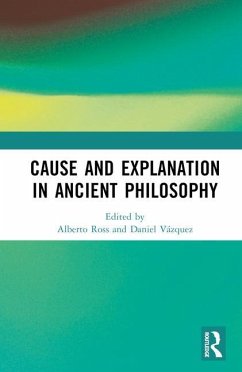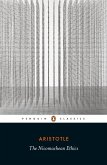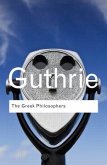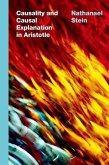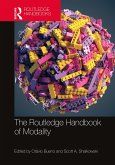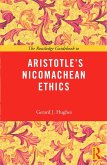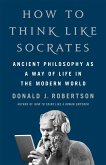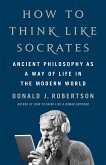This volume offers an updated analysis of the use, meaning, and scope of the classical notion of aitia. It clarifies philosophical and philological questions about aitia and offers bold and innovative interpretations of this key concept of ancient philosophy.
The numerous meanings and nuances of aitia remain difficult to grasp. Ancient philosophers use aitia to explain the existence and activity of substances, bodies, souls, or gods. Paradoxically, its own definition remains difficult to establish. This book reconstructs some of the most important uses, variants, and scopes of the term aitia within different philosophical perspectives in antiquity, including early Greek philosophy, Plato, Aristotle, Stoicism, and Islamic philosophy. The chapters analyze metaphysical aspects, epistemological issues, and logical implications of aitia. They engage with the most relevant critical literature generated in several modern languages. In doing so, they offer an inclusive and overarching re-evaluation of our assumptions about causation and explanation in ancient philosophy.
Cause and Explanation in Ancient Philosophy will be of interest to scholars and advanced students working on Pre-Socratic philosophy, Plato, Aristotle, Hellenistic philosophy, late antiquity, and medieval philosophy.
The numerous meanings and nuances of aitia remain difficult to grasp. Ancient philosophers use aitia to explain the existence and activity of substances, bodies, souls, or gods. Paradoxically, its own definition remains difficult to establish. This book reconstructs some of the most important uses, variants, and scopes of the term aitia within different philosophical perspectives in antiquity, including early Greek philosophy, Plato, Aristotle, Stoicism, and Islamic philosophy. The chapters analyze metaphysical aspects, epistemological issues, and logical implications of aitia. They engage with the most relevant critical literature generated in several modern languages. In doing so, they offer an inclusive and overarching re-evaluation of our assumptions about causation and explanation in ancient philosophy.
Cause and Explanation in Ancient Philosophy will be of interest to scholars and advanced students working on Pre-Socratic philosophy, Plato, Aristotle, Hellenistic philosophy, late antiquity, and medieval philosophy.

